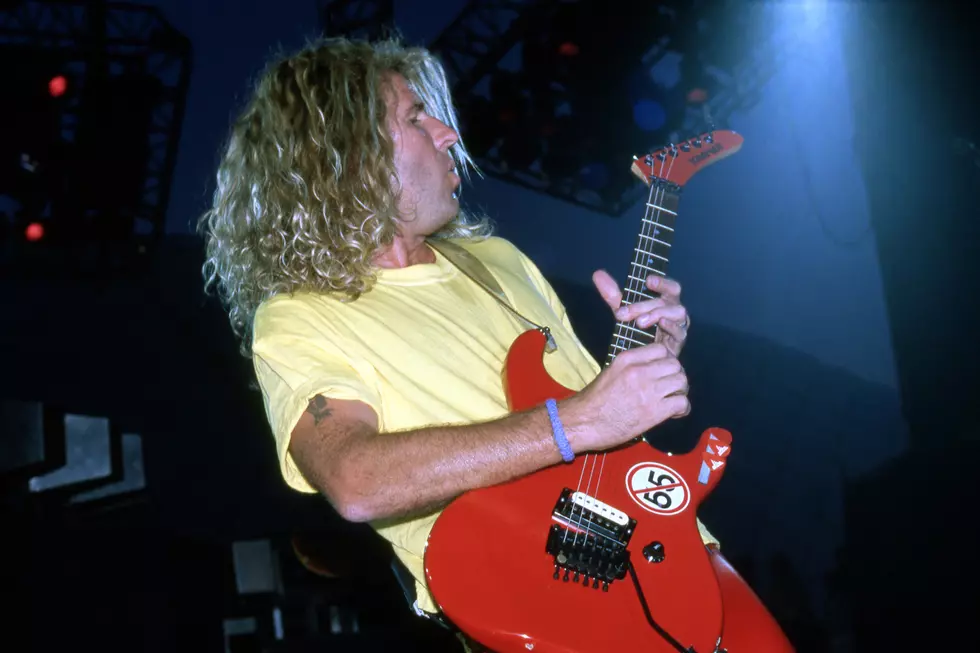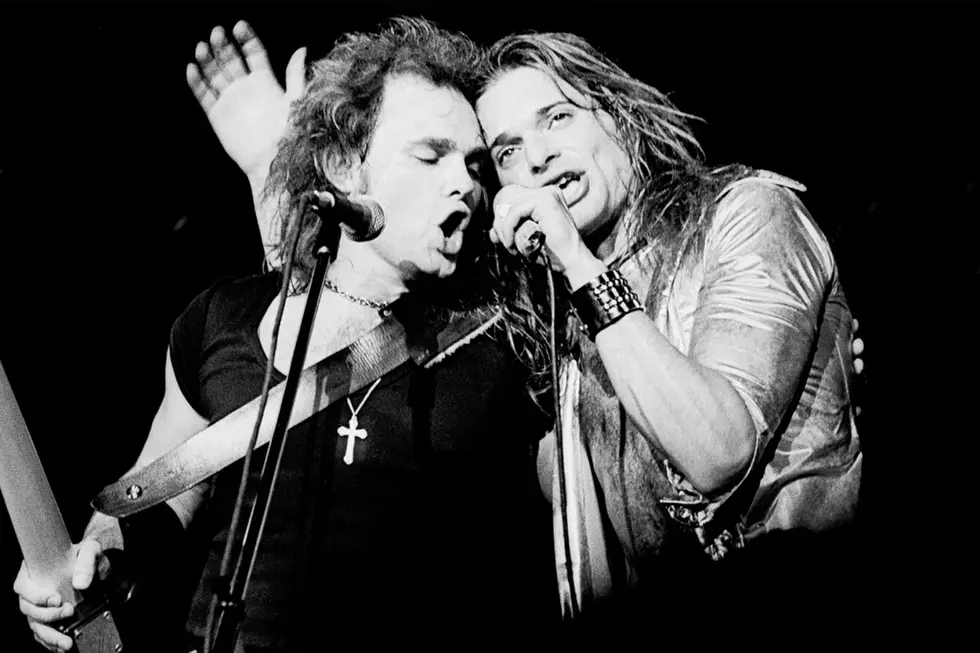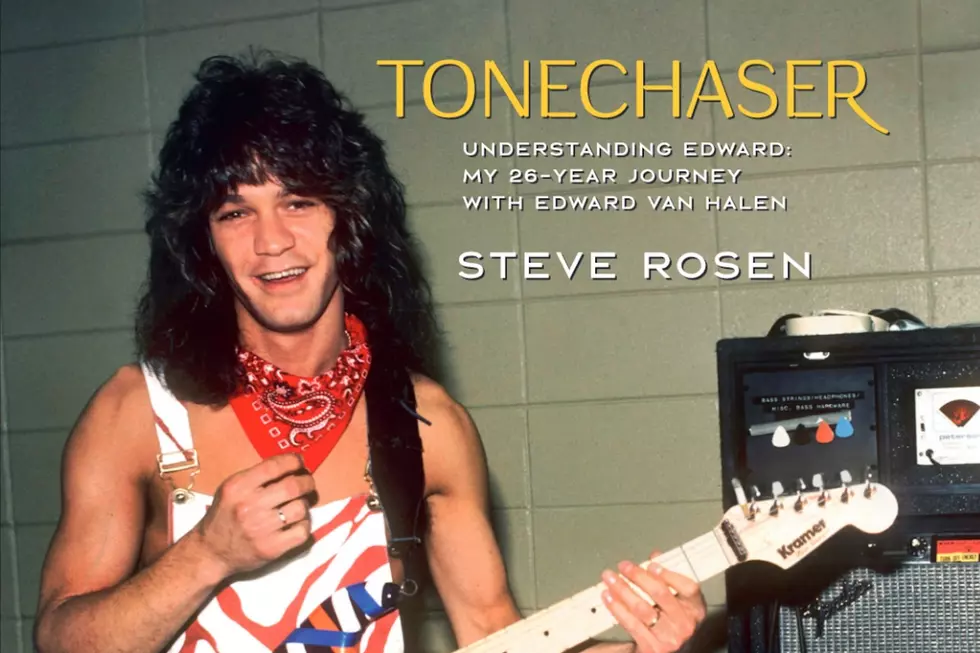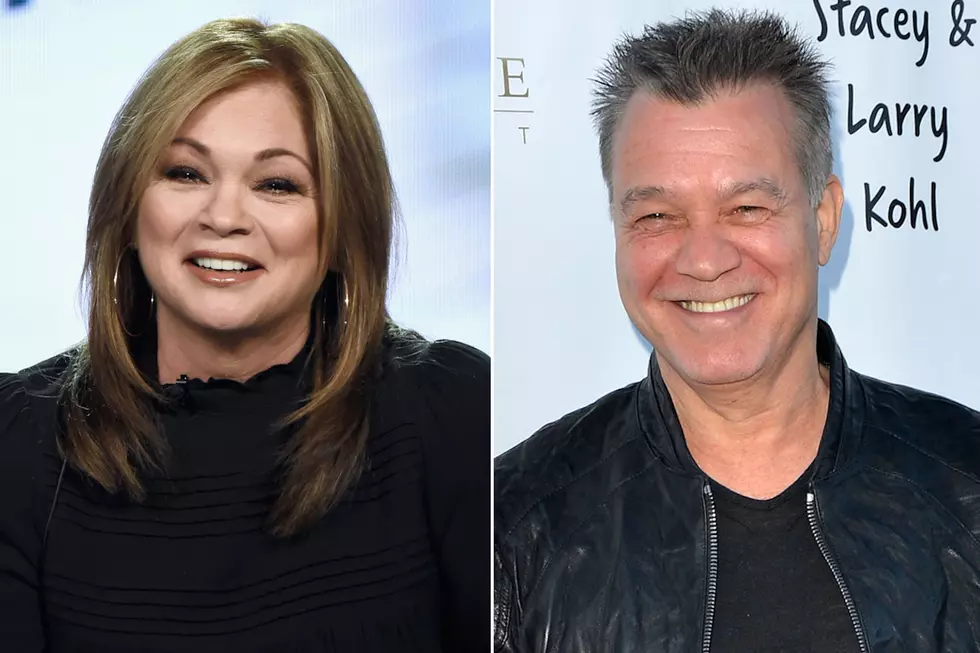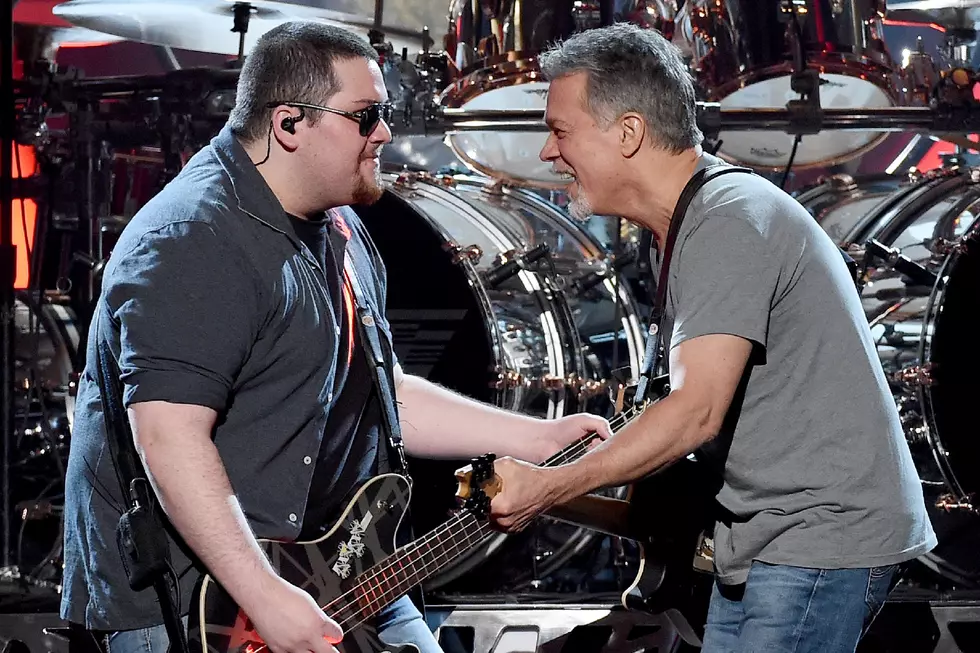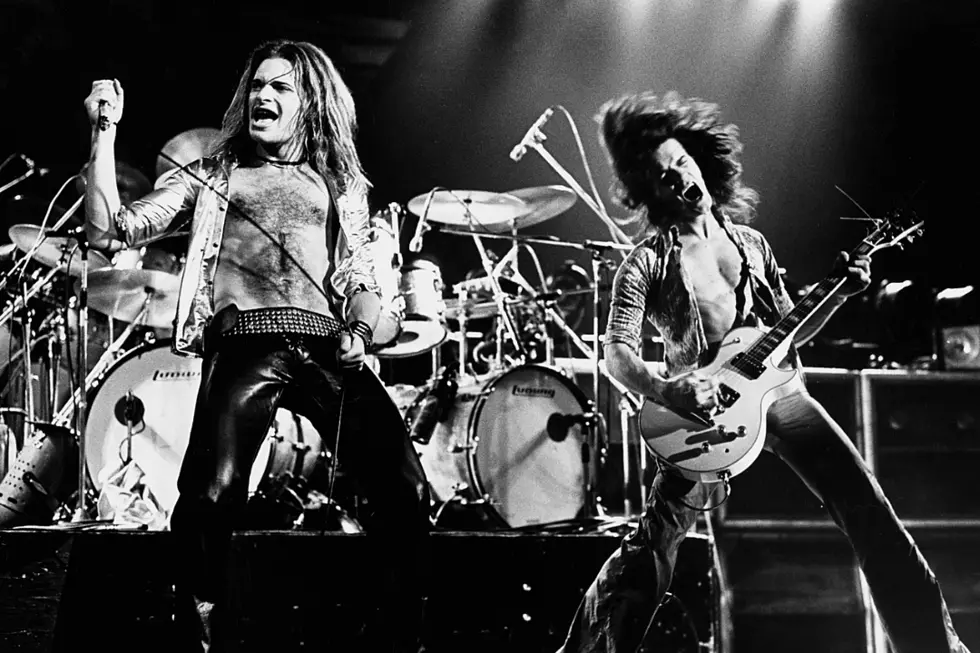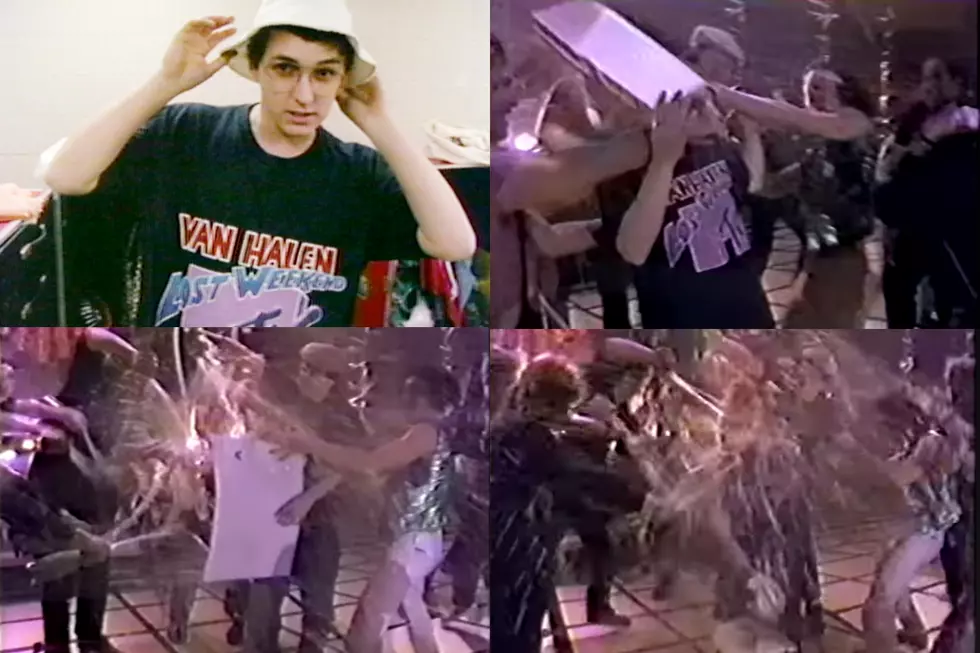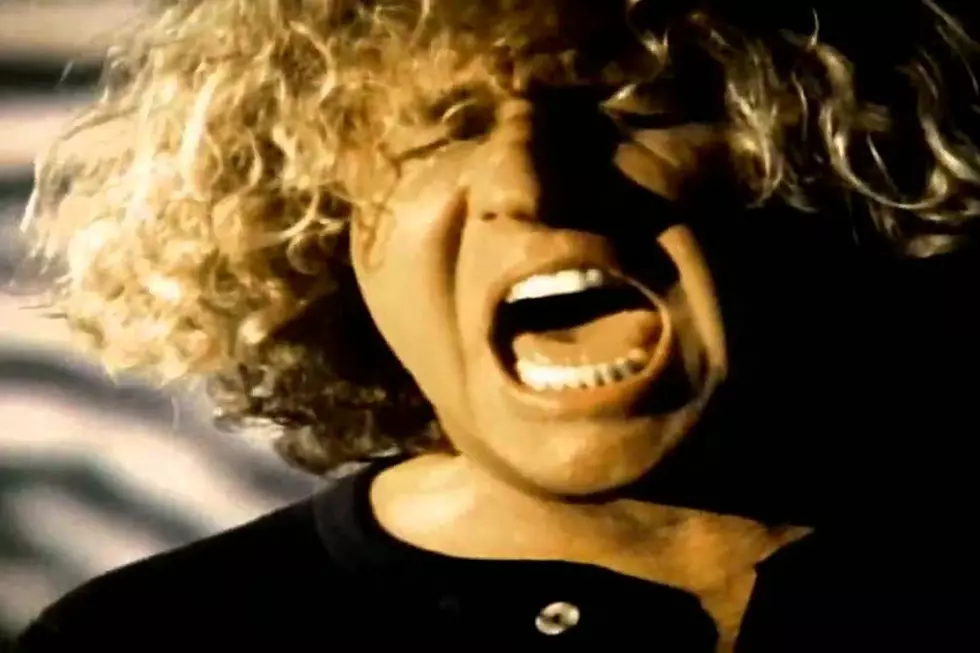
How ‘Don’t Tell Me (What Love Can Do)’ Splintered Van Halen
Van Halen released “Don’t Tell Me (What Love Can Do)” on Dec. 28, 1994, and listeners responded by sending the first single from Balance to the top of Billboard's Mainstream Rock chart for three weeks.
Few fans realized, however, that the song had become a battleground between Sammy Hagar and the Van Halen brothers. In fact, Hagar already knew that production arguments over "Don't Tell Me (What Love Can Do)" heralded the end of his time with the band.
Hagar had always preferred to write his own lyrics, finding inspiration from a wide range of life experiences. In this instance, he decided to write about the power of love and how it might have helped the late Kurt Cobain, just months after the Nirvana star died by suicide.
“I do believe that: Kurt Cobain could have been saved,” Hagar wrote in his 2012 memoir, Red: My Uncensored Life in Rock. “So I wrote that song about it to say you have control over your destiny. ... I wanted the chorus to say, ‘But I want to show you what love can do.’ I wanted to make it a love song … about what people could have done for him, people that he knew and loved.”
But Alex and Eddie Van Halen “fought me on that. They wanted more of a grungy, bad-attitude song: ‘Don’t tell me what love can do.’ That’s not what I had in mind.”
Hagar later admitted that he didn’t necessarily believe the Van Halens were arguing the artistic merits. Instead, he felt Eddie was trying to disguise the fact he was using drugs again, and Alex was trying to cover for his brother. He said they both wanted him out of the band, despite the fact that it seemed like Balance producer Bruce Fairbairn had to “throw Eddie out” of the studio “like, every night.”
Eddie “would come in seeming drunk and fucked up,” Hagar said. "You’d go into the bathroom in the studio and there’d be a hole in the wall. Reach down and there was a big bag of cocaine. A bottle of vodka was underneath the sink. ‘Al,’ I’d say, ‘your brother’s fucked up. What is this bullshit? Everybody saying he’s clean and sober.’ ‘You’re crazy,’ Al would say. ‘That’s just the way Eddie acts.’”
Hagar said he regularly faced down the guitarist personally: “Ed, get the fuck out of here. You’re fucked up. I don’t want you in here while I’m working.” But Van Halen would protest: “I haven’t had a drink for five months, you motherfucker.” Then “he’d break down and cry, bust things up.”
Eddie later insisted he'd stopped using drugs, but that the tensions of the following months led to a relapse. “The situation with Sammy was so bad that I had to warn Bruce not to let him know that I had come up with the title and the melody [of a song],” Van Halen said in 1996. “Because if he found out that, he would have completely turned off. Whenever I suggested something to Sammy, he would just stop talking to me."
Watch Van Halen's ‘Don’t Tell Me (What Love Can Do)’ Video
As tensions boiled over, Fairbairn took Hagar to Vancouver to record his vocals. “Eddie was trying to make me quit,” Hagar argued. “He would find something wrong with every lyric I’d write. He’d never said a word about a lyric before. Suddenly, he didn’t like anything.” When it came to “Don’t Tell Me,” Hagar believed it was just a case of Van Halen being argumentative. “I had this strong, positive thought … but Eddie wanted to switch it around," Hagar said. "‘I want black, no, I want white.’ Okay, I’ll go with white. ‘No, I want black.’ Okay, I wanted black to begin with. ‘You know what? I want white.’ It would drive me crazy. The brothers were dead against me.”
Balance would have never been completed, Hagar argued, if it hadn’t been for Fairbairn. Meanwhile, he kept thinking about original frontman David Lee Roth's experience after bowing out of the group in 1985. “I saw what they did to the other guy,” Hagar said. “They will lie. They will crucify me. They will kill me with the fans. The fans went against Roth. … I didn’t want that to happen to me.”
Hagar had recently completed a divorce and was settling in with another partner, who was pregnant with his child. He said he felt that happiness was upsetting those who didn't share the same feeling. Eddie Van Halen had a different viewpoint.
"In the last couple of years, Sammy went through a lot of changes," Van Halen told Guitar World in 1996. "Possibly because of that, he stopped being a team player. He was especially irritated by the fact that I began to get involved with the lyric writing. Sammy would say, 'You never complained about the lyrics before!' Well, I wasn't sober before, and I wasn't even listening to the lyrics! It's not like I suddenly wanted Sammy to be my puppet or anything, but once in a while I would take issue with a specific lyric or line."
Balance reached No. 1 and went on to achieve triple-platinum status; the opening track, “The Seventh Seal," was nominated for the following year's Best Rock Performance Grammy. But it was to be Hagar’s last album with the group, and he left in June 1996.
Speaking later that year, Van Halen explained what had happened from his perspective, saying he felt there were too many incidents of Hagar placing his own values above the band’s.
“I called Sammy a bunch of times, and when he finally returned my call, I said, ‘Sam, if you want to make another record or do another tour, you've got to be a team player. Van Halen is a band. … We should be called Piss for all I care, but we are a band,'" Eddie told Guitar World. “He finally said, ‘Yeah, goddammit, I'm fuckin' frustrated. I want to go back to being a solo artist.’ And I said, ‘Thank you for being honest.’
“We ended hanging up like everything was cool, because it was all out in the open. He’d admitted that he wanted to do solo stuff. And I said, ‘Well, you can't be in a band and do that too, so see ya.’ I didn't fire him. He just quit.”
Rock's Ugliest Band Breakups
See Rock’s Epic Fails: Van Halen Edition
More From Ultimate Classic Rock
